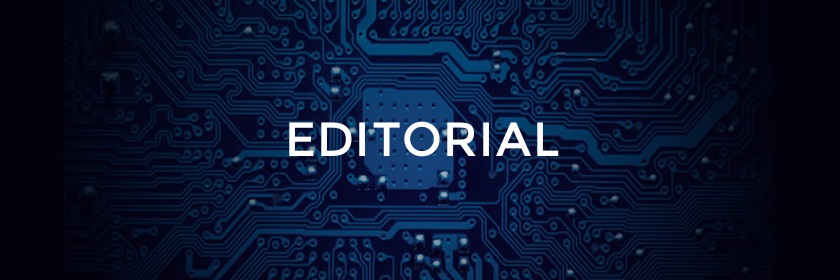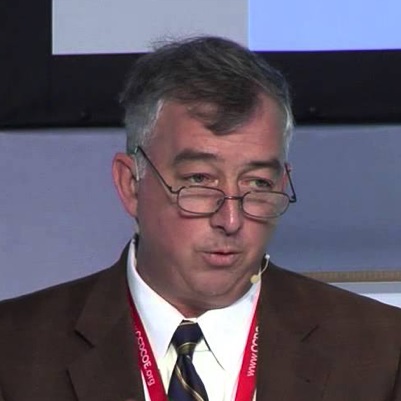Volume 19, Issue 1 Editorial

March 2020
These are exciting times for the Journal of Information Warfare as we have recently published two special editions: the first with the Partnership for Countering Influence Operations (PCIO), housed by the Carnegie Endowment for International Peace (for more on this initiative, see https://carne-gieendowment.org/specialprojects/counteringinfluenceoperat...), and the second with the cadre of experts from and affiliated with the Pacific Northwest National Laboratory in Richland, Wash-ington. In the next eighteen months or so, in addition to our regular issues, we’ll partner with the Council for Scientific and Industrial Research (CSIR) in South Africa on a special edition; work with a group of ICCWS researchers and experts to produce an edition that focuses on big data and privacy, legal perspectives, and cyber-physical systems’ security; and, under the guidance of our first Chief Editor, Bill Hutchinson, deliver a 20th-anniversary edition featuring the authors of the inaugural volume of JIW.
The papers in this edition of the journal were selected as the best from the European Conference on Cyber Warfare and Security conducted at the University of Coimbra (Portugal) in July 2019. Since the conference, the authors have returned to their topics, reviewed and included additional information, and updated their articles for our readers. Varying in range and scope from cyber forensics to ‘fake news’, these articles reveal the depth and breadth of their authors’ expertise and ongoing academic research. For example, Ion Iftimie, author of ‘Cyber Sanctions: Weaponising the Embargo of Flagged Data in a Fragmented Internet’, and his small team of Army and USMC captains and majors were awarded the National Intelligence Meritorious Unit Citation (NIMUC) for the groundwork that laid the foundation for this article. Looking at the strategic implications of this operation, its relevance lies particularly in its contribution to new theoretical knowledge in the field. Ion and his article are in good company. You will find that the entire issue advances both the theoretical and practical knowledge in the dynamic field of information warfare. We invite you to read and enjoy.
So far, this editorial has covered our recent past, our present, and our future. For a moment, we’d like to draw your attention to something that is never far from our thoughts: our genesis. The Journal of Information Warfare began two decades ago at Edith Cowan University in Perth, Australia. Our present and future are as deeply rooted in that university, country, and culture as was our past. Along with so many around the world, we are concerned with the environmental disaster that is occurring down under. Amid the country’s record-breaking heat wave, the wildfires that have been spreading across Australia since September 2019 have burned approximately 16 to 20 million acres. Every state across the country has been impacted, with New South Wales hit hardest. The deaths of at least 25 people are blamed on the fires, and almost 2,000 homes have been destroyed. Entire towns have been forced to evacuate. The country’s biodiversity has also been devastated, with an estimated one billion animals having been lost to the fires. States of emergency have been declared in New South Wales and Victoria, and the country’s army reserve troops have been called up to assist in recovery efforts. Economists are estimating the economic damage from the wildfires will exceed $4 billion.
If you share our concern and if you can, we ask you to consider contributing to one of the following charities:
- American Red Cross
- Animal Welfare InstituteDirect
- Relief & Direct Relief Foundation
- Samaritan’s Purse
- Save the Children
- United States Fund for UNICEF
Dr. Leigh Armistead
Chief Editor Deputy
larmistead@gbpts.com
Dr. Diane L. Silver
Deputy Editor in Chief
dsilver@gbpts.com
AUTHORS

Peregrine Technical Solutions, LLC Yorktown, VA
Dr. Leigh Armistead is the President of Peregrine Technical Solutions, a certified 8(a) small business that specializes in cyber security, and the Chief Editor of the Journal of Information Warfare. He graduated from the U.S. Naval Academy (1984), earned a master’s degree in Military History from Old Dominion University (1993), and a doctorate in Computer and Information Science from Edith Cowan University (2009). His major field of study is cyber power. He has published three books—all of which focus on the full spectrum of information warfare. He founded the International Conference on Cyber Warfare and Security, and the Vice-Chair Working Group 9.10–ICT Uses in Peace and War. He is a retired Naval officer.

Deputy Editor in Chief
Dr. Diane Silver earned her bachelor's degree in English from Emory & Henry College, her master's degree in English from Radford University, and her Ph.D. in Medieval Literature from the University of Louisiana at Lafayette. In 2013, after more than twenty years of teaching literature, composition, grammar, business communications, and technical writing at the college level, she joined the JIW staff as a technical writer and editor.
Published In
Keywords
Journal of Information Warfare
The definitive publication for the best and latest research and analysis on information warfare, information operations, and cyber crime. Available in traditional hard copy or online.
Quick Links
Archive

